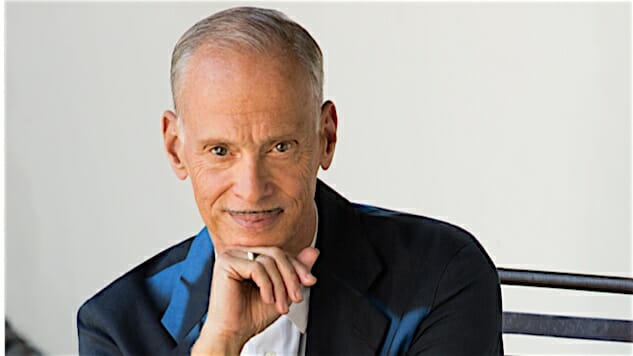John Waters Has Some Interesting Things to Say
Photo credit Greg Gorman
John Waters, the American director and writer of transgressive indie films (Hairspray, Pink Flamingoes), has been called a lot of different names, but on the phone he is a poised, delightful man in his seventies. Like talking to Vladimir Nabokov, if he adored grindhouse.
In 1994, Waters released Serial Mom, a black comedy about the serial-killing matriarch of a suburban family. Featuring Kathleen Turner as a spree murderer, the film garnered positive feedback from critics and box office death; it went on to became a cult favorite, like most of Waters’ films. Next month, Shout! Factory will re-release the picture in a Blu-ray Collector edition, featuring various extras. (And last month, there was a Criterion release of Multiple Maniacs—it’s a good time to be a Waters fan.) Paste had the chance to interview the maestro of Baltimore cinema.
John Waters is exceedingly polite. John Waters is a workaholic, so his time is tightly scheduled, but when he is with you, he is fully present. John Waters seems to be without artifice. John Waters wishes you to know that his obsessions and interests are sincere, and he is not winking when he makes these movies. His satires are volleys at the fortress of square life. God loves irony, but John Waters does not.
“I love the man, I love the man dearly … He’s the boldest of the bold of the filmmakers; I wish I had the guts of this man,” Werner Herzog said of him. In conversation, John Waters will tell you exactly what he is thinking on any given subject, but he is so charming about it. Like most artists who have aroused controversy and affection, John Waters seems to be both interested in your reaction to his work, and probably could not give two hoots in hell if you hated his guts.
What more can I do but give you the man himself?
Paste: Serial Mom has become a classic. Why do people like this movie so much?
Waters: Because everybody’s mother, in a way, is a Serial Mom! Everybody has pet peeves—you had friends that they didn’t like. Now, your mother didn’t go set them on fire, but you kind of, maybe, wish your mother did go back to school and murder a teacher that was unfair to you. This is a comedy, so we know it’s not realistic, but I think everybody, in some way, wishes that they have a Serial Mom. In another way, this movie was done before O.J., and there’s kind of a lot of similarities to the true crime genre and reality stuff they have on television. Every crime they do over and over again on every channel, even if it’s usually a classy channel like the History Channel or Discovery Channel. So I think in a way we satirized something pretty early.
Paste: Now if everybody has a mother like this Serial Mom …
Waters: Everybody has a mother not quite like this, but everybody has a mother who has pet peeves. Like your mother, what does she hate?
Paste: She doesn’t like rudeness, I suppose.
Waters: Okay, so she wants people to have some manners. My mother wanted that, too. And we need to learn good manners. Now that’s something I still believe in. […] I’m very right-wing on the white after Labor Day. I think people should go to jail for that—I think we need to bring back fashion jail.
Paste: I read recently that you are on that Feud show. How’d you get on there?
Waters: I had to keep that secret for a long time.
Paste: Can you tell our readers who William Castle is and why you played him?
Waters: It was interesting they asked me to play him because I don’t really look like him. But I talk about him a lot. He had gimmicks in all his movies. He had skeletons that went out on wires and buzzers that went off under your feet. I kind of gave a tribute to him with Odorama in my film Polyester, where you scratch-n-sniff smells during the movie. I wrote the introduction to William Castle’s biography when it was later promoted … I’ve been a big William Castle fan forever, so it was fun to play him. Especially when I get to do a scene with Jessica Lange as Joan Crawford.
Paste: That sounds really fun.
Waters: Well, all movie-making is slow. “Hurry up and wait,” and slow, and slow. But I had a great time with Jessica because I hadn’t met her and I was still scared of her from her movie Frances.
-

-

-

-

-

-

-

-

-

-

-

-

-

-

-

-

-

-

-

-

-

-

-

-

-

-

-

-

-

-

-

-

-

-

-

-

-

-

-

-








































